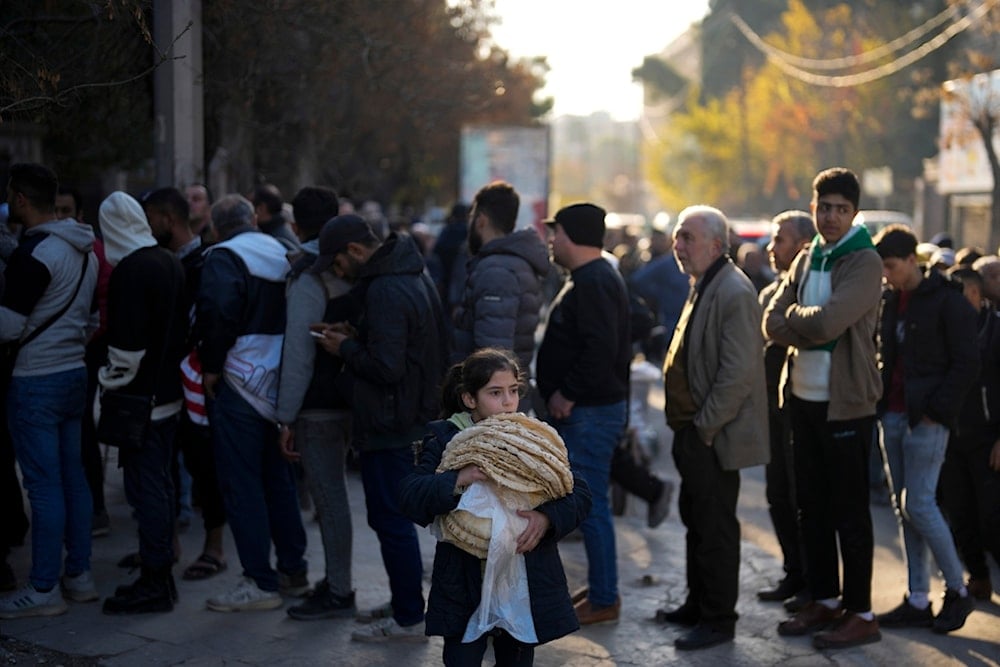Debate rises over sanctions as Syria faces urgent humanitarian crisis
Ahmed al-Sharaa, the leader of Hayat Tahrir al-Sham, has called for the removal of the terrorist designation and the lifting of sanctions, arguing that such steps are essential for Syria’s recovery.
-

Residents stand in queue as they wait to buy bread from a bakery in the city of Aleppo, Syria, Saturday, Dec. 14, 2024. (AP Photo/Khalil Hamra)
The New York Times on Thursday reported that the fall of Syrian President Bashar al-Assad's government, marking the end of a brutal 13-year war on Syria, has ushered in new complexities for the country's recovery efforts.
While Syrians have celebrated the collapse of a regime they say was associated with poverty and human rights abuses, the new regime forces taking over the country poses significant challenges.
Chief among them is the international designation of Hayat Tahrir al-Sham (HTS), the dominant faction in the new leadership, as a terrorist organization by the United States, United Nations, and other global actors.
This classification blocks access to critical reconstruction aid and limits the avenues available for foreign assistance.
"Syria is one of the most comprehensively sanctioned nations in the world," Alex Zerden, a senior fellow at the Center for a New American Security, told the newspaper. He noted that the sanctions, combined with export controls, make delivering humanitarian assistance exceedingly difficult.
Sanctions debate
International relief efforts have begun trickling in, with the UK announcing £50 million ($63.5 million) for displaced Syrians and refugees in neighboring countries, and Germany pledging €8 million ($8.4 million) for humanitarian aid.
However, these contributions pale in comparison to the immense financial need for rebuilding Syria after more than a decade of devastation.
Read more: UN envoy says Syria conflict not over; SC urges 'inclusive' process
Ahmed al-Sharaa, the leader of Hayat Tahrir al-Sham, has called for the removal of the terrorist designation and the lifting of sanctions, arguing that such steps are essential for Syria's recovery.
During a press conference in Damascus, he urged the international community to reconsider its approach, emphasizing the need for rebuilding and providing humanitarian support.
Aid impasse
This call has sparked debate within US foreign policy circles, with some lawmakers advocating a temporary suspension of sanctions to expedite aid.
Senator Chris Murphy, a Democrat from Connecticut, urged immediate action, stating, "the US should temporarily suspend sanctions that hamper the much-needed surge in humanitarian assistance and reconstruction that will be necessary to help support the Syrian people in the short term."
However, with the current US administration in transition, the likelihood of swift changes to sanctions or HTS's classification remains slim. For now, humanitarian exceptions are expected to be the primary mechanism for aid delivery.
Read more: HRW urges EU to revise sanctions for better aid access in Syria
As foreign powers maneuver to assert influence in Syria, the urgency for a coordinated international response grows. "Decisions in Damascus will be made quickly," Senator Murphy said, "and too often other powers act as the US wrings it hands over what to do."

 3 Min Read
3 Min Read










